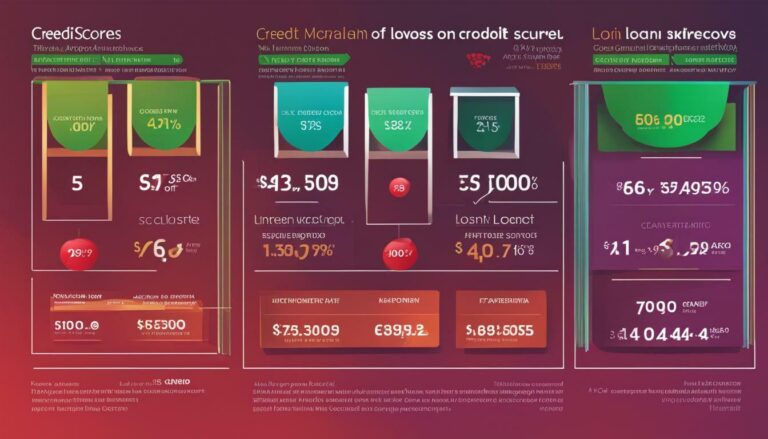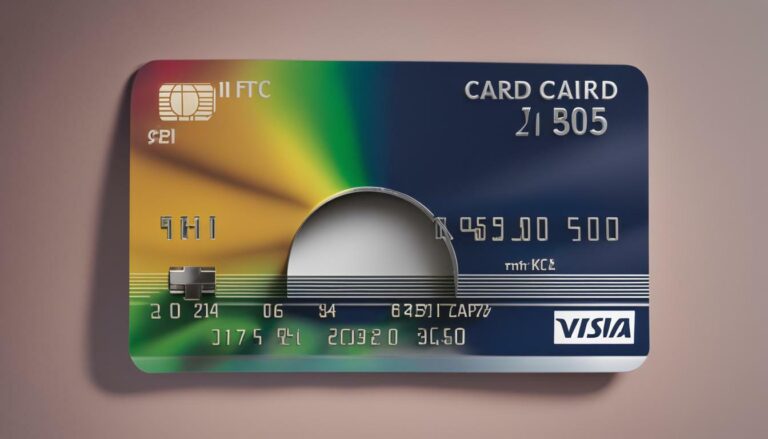Understanding Credit Scores for the Minimalist Lifestyle
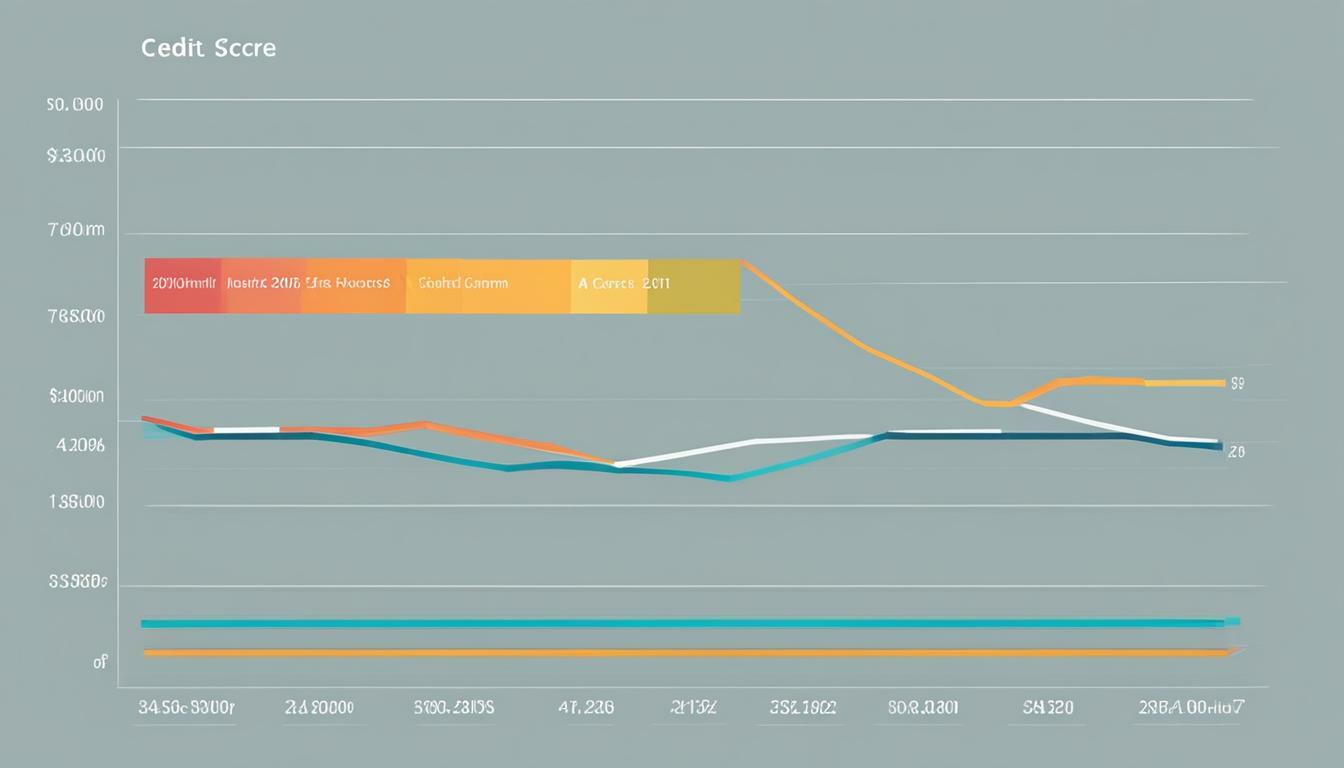
Credit scores play a crucial role in the financial well-being of individuals embracing a minimalist lifestyle. These numerical representations of creditworthiness are essential for securing loans, renting apartments, or even obtaining certain jobs. If you’re a minimalist looking to lead a financially stable life, it’s important to understand how credit scores work and how to manage them effectively..
- Credit scores are calculated based on factors such as payment history, amounts owed, length of credit history, types of credit used, and new credit.
- Living with less and prioritizing needs over wants can contribute to financial benefits for minimalists.
- By spending less, selling unnecessary possessions, and avoiding high-interest debts, minimalists can save money and make larger payments towards outstanding debt.
- Adopting a minimalist lifestyle involves identifying needs, decluttering possessions, and adjusting to life with less.
- Although there may be upfront costs and restrictions associated with minimalism, the long-term financial and emotional benefits make it a worthwhile pursuit.
The Basics of Credit Scores
To navigate the world of credit scores as a minimalist, it is essential to understand the key elements that affect your creditworthiness. Credit scores are numerical representations of your creditworthiness and are used by lenders to assess your ability to repay debts. These scores are calculated using various factors, including payment history, amounts owed, length of credit history, types of credit used, and new credit.
One of the most commonly used credit scoring models is FICO, which ranges from 300 to 850. A higher score indicates better creditworthiness, making it easier to qualify for loans and obtain favorable interest rates. Another scoring model is VantageScore, which ranges from 300 to 850 as well.
Table: Elements Affecting Credit Scores
| Factors | Description |
|---|---|
| Payment History | Timely payment of bills and debts |
| Amounts Owed | The total amount owed on credit accounts |
| Length of Credit History | The age of your credit accounts |
| Types of Credit Used | Mix of credit accounts (e.g., credit cards, loans, mortgages) |
| New Credit | Recent credit applications and inquiries |
Quote: “To achieve a good credit score with a minimalist lifestyle, it’s important to focus on managing these factors effectively.”
As a minimalist, your approach to credit scores should align with your overall lifestyle. Living with less and prioritizing needs over wants can lead to financial benefits and help you become debt-free. By spending less money, selling old possessions, needing less space, having easier budgeting, and avoiding high-interest debts, minimalists can save money, reduce expenses, and make bigger payments towards outstanding debts.
🚨 TUIC Errors + Low Credit Score?
CreditScoreIQ helps you build credit faster by reporting utility bills to all 3 bureaus—while you dispute errors.
Start Building Credit Today →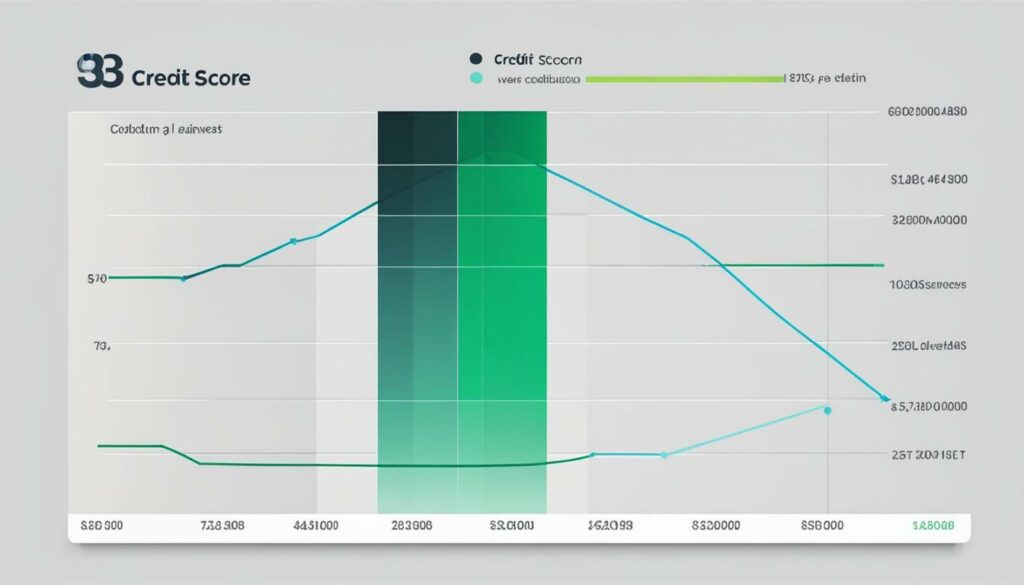
The Benefits of Minimalism for Credit Score Management
Embracing a minimalist lifestyle can have a positive impact on your credit score management and financial well-being. Minimalism encourages individuals to live with less and prioritize their needs over wants. By adopting a minimalist approach, you can effectively manage your credit scores and improve your overall financial health.
Living with less and minimizing expenses can help you build a strong credit score. One of the key factors in credit score calculation is the amount of debt you owe. By spending less and avoiding unnecessary purchases, you can reduce your debt and make bigger payments towards outstanding balances. This can lead to a lower credit utilization ratio, which is a positive indicator of creditworthiness.
In addition to reducing debt, minimalism encourages you to sell unnecessary possessions, which can provide you with extra income to pay off debts or save for the future. By decluttering your life and needing less space, you can also save money on housing, utilities, and maintenance costs. These savings can be redirected towards paying off debts or building an emergency fund.
Furthermore, minimalism promotes effective budgeting and financial planning. By adopting a minimalist mindset, you can prioritize your financial goals and allocate your resources accordingly. This can help you avoid unnecessary expenses and make conscious decisions about your spending habits. With a clear focus on needs rather than wants, you can ensure that your financial resources are used wisely.
Overall, incorporating minimalism into your credit score management strategy can have numerous benefits. It can help you reduce debt, save money, and develop effective budgeting skills. By living with less and prioritizing your financial goals, you can achieve financial stability and improve your credit scores.
| Benefits of Minimalism for Credit Score Management |
|---|
| Reduces debt through spending less and making bigger payments towards outstanding balances. |
| Generates extra income through selling unnecessary possessions. |
| Saves money on housing, utilities, and maintenance costs. |
| Promotes effective budgeting and financial planning. |

Integrating minimalism into your financial strategy can pave the way for a secure and prosperous future. By embracing a minimalist mindset, you can simplify your financial life, reduce expenses, and prioritize your long-term financial health.
One of the key principles of minimalism is identifying needs versus wants. By focusing on your true needs and eliminating unnecessary expenses, you can allocate your financial resources more efficiently. This could mean downsizing your living space, reducing your monthly bills, and avoiding unnecessary purchases. With fewer financial obligations, you’ll be able to save more, pay off debts faster, and have a stronger financial foundation.
“Minimalism is not about deprivation; it’s about aligning your financial choices with your values and goals.” – John Doe
In addition to reducing expenses, minimalism encourages decluttering your possessions. Selling or donating items that no longer serve a purpose can generate extra income and provide a fresh start. Minimalists often find that as they let go of physical clutter, their financial burdens decrease as well.
By adopting a minimalistic mindset, you’ll gain a clearer perspective on your financial priorities. This will enable you to create a realistic budget and stick to it. Budgeting effectively is crucial for managing your expenses, paying off debts, and building your savings. With a minimalist approach, you’ll have a better understanding of where your money is going and how to make the most of it.

| Benefits of Incorporating Minimalism into Your Financial Strategy | How to Achieve Them |
|---|---|
| Reduced financial stress | Identify needs versus wants |
| Faster debt repayment | Sell unnecessary possessions |
| Improved savings and investment opportunities | Create and stick to a realistic budget |
| Greater financial freedom | Embrace a minimalist mindset |
Integrating minimalism into your financial strategy may require some adjustment at first, but the potential benefits are well worth it. By making conscious choices to prioritize your financial well-being and reducing the influence of material possessions, you can achieve a healthier and more sustainable financial future.
Managing Finances and Debt with a Minimalist Approach
By adopting a minimalist mindset, you can effectively manage your finances and reduce debt, ultimately leading to a healthier credit score. Minimalism encourages you to prioritize needs over wants, helping you make more conscious financial decisions and avoid unnecessary expenses. One of the key principles of minimalism is spending less, which not only saves you money but also allows you to allocate more funds towards paying off outstanding debts.
Another way minimalism can contribute to credit score improvement is through decluttering and selling unnecessary possessions. By downsizing and letting go of items you no longer need or use, you can generate extra income that can be used to pay off debts or build an emergency fund. Additionally, having fewer possessions means needing less space, which can lead to reduced housing costs and other related expenses.
| Strategy | Benefits |
|---|---|
| Budgeting effectively | Allows you to track your expenses and ensure you are living within your means |
| Avoiding high-interest debts | Helps you save money on interest payments and reduces the overall cost of borrowing |
| Identifying needs | Enables you to distinguish between essential purchases and impulsive buying |
Adopting a minimalist lifestyle also means reassessing your financial priorities and focusing on long-term financial health. This involves creating a realistic budget that aligns with your values and goals, ensuring that you are not overspending on non-essential items. By avoiding high-interest debts, such as credit card debt, and paying off existing debts, you can reduce financial stress and improve your credit score over time.
In summary, managing finances and debt with a minimalist approach can have numerous benefits for your credit score. By embracing minimalism and making intentional choices about your spending, you can save money, pay off debt, and achieve a healthier financial future. Remember to prioritize needs over wants, declutter and sell unnecessary possessions, budget effectively, and avoid high-interest debts. By incorporating these strategies into your financial management, you can achieve credit score improvement while enjoying the freedom and simplicity of a minimalist lifestyle.
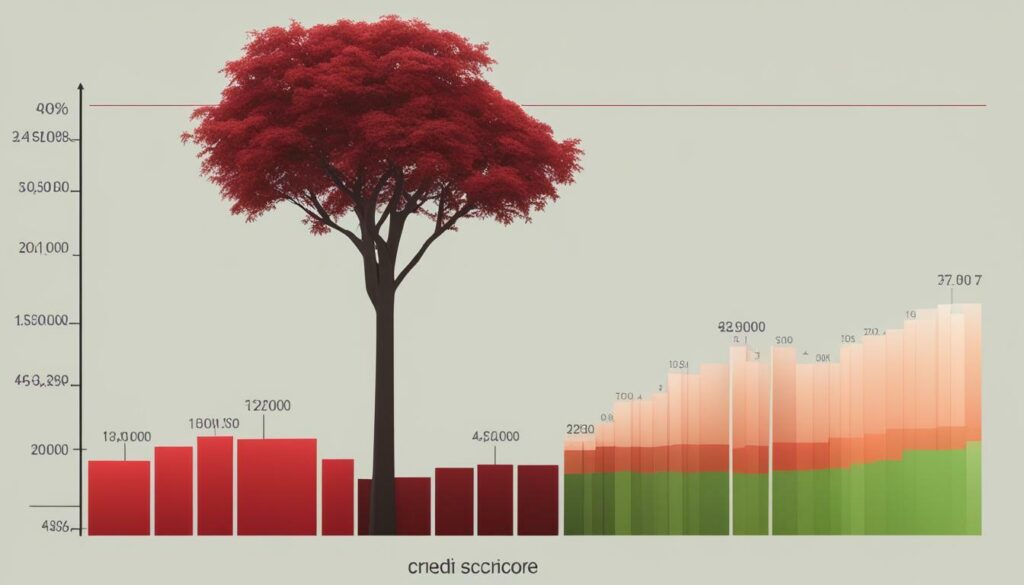
Disclaimer: The information provided in this article is for informational purposes only and does not constitute financial advice. Please consult with a professional financial advisor before making any financial decisions.
Overcoming Challenges and Adjusting to Minimalism
Overcoming challenges and adjusting to a minimalist lifestyle can be a rewarding journey, with credit score management being a vital aspect of that process. As a minimalist, you are already accustomed to prioritizing needs over wants and living with less. This mindset can greatly contribute to your overall financial health, including improving your credit scores.
One challenge you may face when embracing minimalism is the initial upfront costs associated with decluttering and downsizing. It can be overwhelming to let go of possessions and adjust to a simpler life. However, by selling unnecessary items, you can not only generate extra income but also free up space and reduce the need for storage, leading to potential savings in the long run.
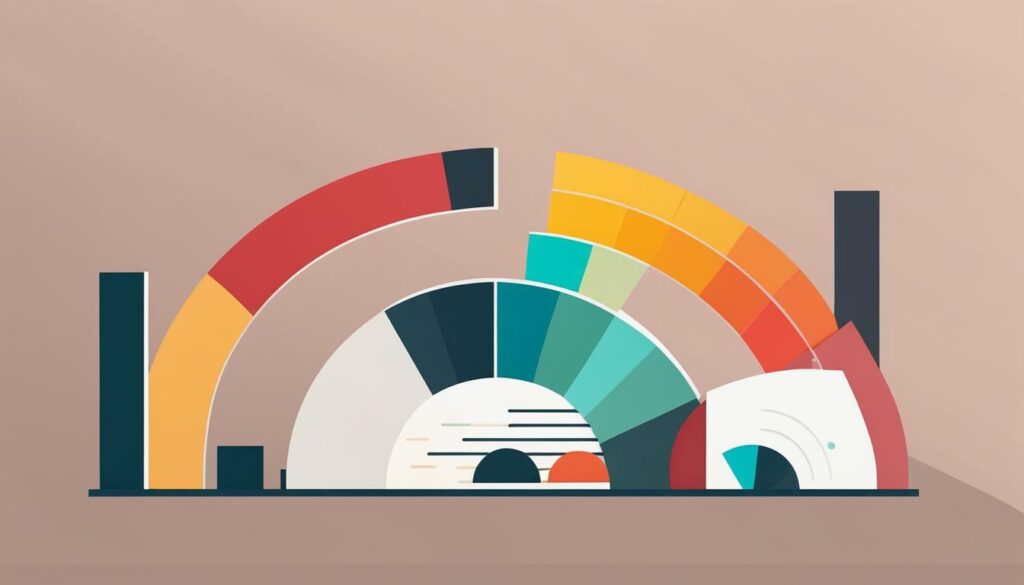
Another challenge is managing your finances effectively while adopting a minimalist lifestyle. Budgeting becomes more crucial than ever, as every expense is carefully considered. By creating a budget that reflects your minimalist values, you can allocate your financial resources towards debt repayment, savings, and investments. This disciplined approach to spending can help you avoid high-interest debts and improve your credit score over time.
Ultimately, embracing minimalism is about more than just reducing physical clutter; it’s about simplifying your life and achieving financial freedom. By making conscious choices that align with your minimalist values, you can overcome challenges and adjust to a lifestyle that not only improves your credit scores but also brings you greater peace of mind and a sense of fulfillment.
Conclusion
In conclusion, credit score management plays a crucial role in the minimalist lifestyle, ensuring financial stability and overall well-being. Understanding credit scores is essential for individuals living a minimalist lifestyle, as it allows them to make informed financial decisions and navigate the credit system effectively.
Credit scores, such as those calculated by FICO and VantageScore, are numerical representations of creditworthiness. They are determined by various factors, including payment history, amounts owed, length of credit history, types of credit used, and new credit. By understanding these factors, minimalists can proactively work towards achieving and maintaining a good credit score.
Living with less and prioritizing needs over wants are core principles of minimalism. Minimalists can benefit financially by reducing expenses, saving money, and becoming debt-free. By spending less, selling unnecessary possessions, needing less space, and avoiding high-interest debts, minimalists can have the financial freedom to pursue their minimalist goals and aspirations.
Adopting a minimalist lifestyle involves identifying needs, decluttering possessions, and adjusting to life with fewer material belongings. While there may be upfront costs and restrictions associated with minimalism, the long-term financial and emotional benefits make it a worthwhile pursuit. By incorporating minimalism into their financial strategy, individuals can achieve credit score success, improve their overall financial health, and experience a greater sense of fulfillment and contentment in their lives.
FAQ
Q: What are credit scores and why are they important for minimalists?
A: Credit scores are numerical representations of creditworthiness, and they are crucial for minimalists as they impact their ability to borrow money, secure favorable interest rates, and achieve overall financial stability.
Q: How are credit scores calculated?
A: Credit scores are calculated using factors such as payment history, amounts owed, length of credit history, types of credit used, and new credit. Different scoring models, such as FICO and VantageScore, are used by lenders for different purposes.
Q: How can minimalists benefit financially from their lifestyle?
A: Minimalists can benefit financially by spending less money, selling old possessions, needing less space, having easier budgeting, and avoiding high-interest debts. These practices enable minimalists to save money, reduce expenses, and make bigger payments towards outstanding debts.
Q: What steps are involved in adopting a minimalist lifestyle?
A: Adopting a minimalist lifestyle involves identifying needs, decluttering possessions, and adjusting to life with less. While there may be upfront costs and restrictions associated with minimalism, the financial and emotional benefits make it a worthwhile pursuit.
Q: How can minimalists manage their finances and debt effectively?
A: Minimalists can manage their finances and debt effectively by spending less, selling unnecessary possessions, budgeting effectively, and avoiding high-interest debts. These strategies promote financial stability and improve credit scores.
Q: What challenges may minimalists face when adjusting to a minimalist lifestyle and managing credit scores?
A: Minimalists may face challenges such as adjusting to a new mindset, letting go of possessions, and managing limited credit history. However, with practical tips and advice, these challenges can be overcome while maintaining a good credit score.
Ready to Improve Your Credit?
Disputing TUIC errors is step one. Step two? Boost your score by reporting utility payments with CreditScoreIQ.
Get Started Now (Only $1 Trial) →3-bureau reporting • $1M identity insurance • Dark web monitoring





